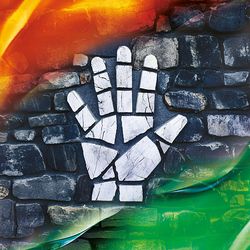Heard of Hiroo Onoda?
Hiroo was one of the several thousand soldiers of Japan’s Imperial Army who were sent to fight on the scores of islands in the Pacific against the Allies in World War II. Their orders were to fight till death, and never to surrender.
Japan lost the war, and became an ally of its old enemies. The world changed, empires broke up, the Cold War began, hot wars broke out in Korea, Vietnam and West Asia, the Russians went into space, the Americans to the moon, women burnt bras, babies boomed, Beatles sang, Japan made cars—without Hiroo or his marooned buddies getting any wiser.
The post-war Japanese and their new American friends knew there were Imperial Army troopers left behind by time and war. They dropped leaflets on the islands to inform “anybody out there” that the emperor’s war had ended long ago. Hiroo and his buddies read a few of those, but dismissed them as enemy propaganda. They sat in the bushes through rain, shine and sounds of overflying airplanes, keeping their powder ready for an enemy who never came. Till an explorer found Hiroo in 1974, and convinced him that the war had ended three decades earlier.
The opposition in India is trapped in a similar time warp. Like Hiroo & Co who continued to ‘fight’ the Yanks and the Brits after the latter became allies, they are still fighting their old enemies—the Congress against the communists in Kerala, the commies against the Trinamoolis in Bengal, the Aam Aadmis against the Congress in Punjab, and Jagan against who knows.
The Congress in Kerala are the worst afflicted. They are fighting the faction wars of the 1970s and 1980s, calling themselves I group (I for Indira) group and A group (for A.K. Antony who had once opposed her Emergency). Believe me, they still divide party posts (plenty) and spoils (little), evenly between the A and the I groups. But then, why not? It keeps them fighting fit.
The allies are peeved that the Congress is not getting the coalition dharma right, causing many to leave. Nitish Kumar may have had axes to grind, but a bit more tact on the part of the Congress and the left could have prevented Mamata Banerjee from stomping out.
There are saving graces, though. Take M.K. Stalin. His DMK could have fought alone in all the 40 seats in his Tamil territory (including Puducherry), yet lent nearly half of those to allies including the communists who are fighting to prove they exist. Or Arvind Kejriwal. He had thrown tantrums in the early INDIA days, but in the end not only gave three of Delhi’s seven seats to the Congress, but has also hit the campaign road for all seven. Sadly, even one week after making the pact, the Congress couldn’t give him the names of their three guys for whom Kejriwal has started seeking votes! Indeed, he has spurned the Congress in Punjab, but that is to give the opposition space to the Congress, rather than concede it to the BJP or the Akalis.
Meanwhile, the BJP, whom they are supposed to be fighting together, is befriending foes, eyes closed. Having grabbed JD(U), and factions of Shiv Sena and NCP, it is wooing Naveen Patnaik whose government it was supposed to be opposing.
Come to think of it, isn’t opportunity knocking on the Congress’ doors? As the Aam Aadmis asked them in Punjab, who will occupy the opposition space in Odisha if the principal opposition allies with the rulers?
Does the Congress hear the knock? If yes, get into attack mode in the battle of Kalinga. If no, listen to Aristotle. Two millennia ago, the sage said, nature abhors vacuum. Even in political space.
prasannan@theweek.in


